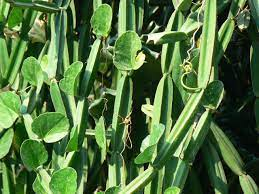CORIANDER (Coriandrum sativum)
Introduction
Coriander, scientifically known as Coriandrum sativum,
is an aromatic herb widely used in culinary traditions around the world. Beyond
its culinary appeal, coriander has been employed for centuries due to its
remarkable medicinal properties. From its rich nutritional composition to its
diverse range of therapeutic effects, coriander has emerged as a promising
natural remedy. This article explain the medicinal uses of coriander, shedding
light on its potential health benefits and exploring its applications in
various traditional and alternative medicine practices.
Nutritional Composition
Coriander leaves, seeds and essential
oil contain a wealth of essential nutrients, making them a valuable addition to
a healthy diet. The herb is an excellent source of dietary fiber, vitamins A,
C, and K, and minerals such as potassium, iron, and manganese. It also boasts a
range of beneficial phytochemicals including flavonoids, phenolic compounds,
and terpenoids. These constituents contribute to coriander's medicinal
properties, offering a multifaceted approach to health and well-being.
Digestive Health
Coriander has long been valued for
its digestive benefits. The herb contains natural enzymes that aid in digestion
and promote the release of gastric juices, enhancing the overall digestive
process. It can help alleviate symptoms of indigestion, bloating, and
flatulence. Moreover, coriander exhibits antimicrobial properties that combat
harmful bacteria like Salmonella, offering protection against foodborne
illnesses. Additionally, coriander stimulates liver function, promoting the
secretion of bile and facilitating the breakdown of fats.
Anti-inflammatory and Antioxidant Effects
The presence of potent antioxidants, such as quercetin and
kaempferol, in coriander contributes to its anti-inflammatory properties. These
compounds help neutralize free radicals, reducing oxidative stress and
inflammation throughout the body. As a result, coriander may aid in managing
conditions associated with chronic inflammation, such as arthritis,
cardiovascular disease, and certain types of cancer. Its anti-inflammatory
effects may also provide relief from skin irritations and allergies.
Blood Sugar Regulation
Coriander demonstrates potential in managing blood sugar
levels, making it beneficial for individuals with diabetes or prediabetes.
Studies have shown that coriander supplementation may help lower blood glucose
levels by increasing insulin secretion and enhancing insulin sensitivity. This
herb's hypoglycemic properties could assist in maintaining healthy blood sugar
balance and reduce the risk of complications associated with diabetes.
Cholesterol Management
Coriander seeds contain compounds that aid in managing
cholesterol levels. They have been shown to lower total cholesterol and
triglyceride levels while increasing levels of beneficial high-density
lipoprotein (HDL) cholesterol. These effects contribute to a healthier lipid
profile and may help reduce the risk of cardiovascular diseases, such as heart
disease and stroke.
Anti-anxiety and Sleep Aid
Coriander possesses natural sedative properties that can help
alleviate anxiety and promote better sleep. Its essential oil, when used in
aromatherapy or applied topically, has a calming effect on the nervous system,
reducing stress and anxiety. Additionally, coriander contains compounds that
interact with neurotransmitters, promoting relaxation and improved sleep
quality.
Conclusion
Coriander is not only a culinary delight but also a treasure
trove of medicinal benefits. From aiding digestion and reducing inflammation to
managing blood sugar and cholesterol levels, coriander offers a holistic
approach to health. However, it is essential to consult a healthcare
professional before incorporating coriander as a medicinal supplement,
especially if you have existing medical conditions or are on medication.
Embracing the medicinal potential of coriander can provide a natural and
flavorful way to support overall well-being.
HAPPY BLOGGING!!!
DEEPIKA KRISHNAMOORTHY
A RESEARCH SCHOLAR




Comments
Post a Comment